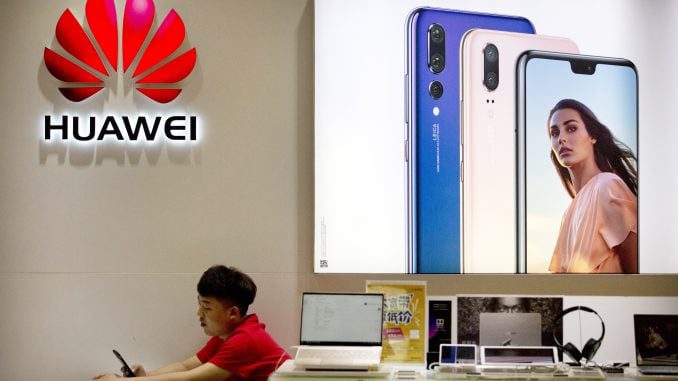
WASHINGTON, D.C. — The Justice Department unsealed criminal charges Monday against Chinese tech giant Huawei, two of its subsidiaries and a top executive, who are accused of misleading banks about the company’s business and violating U.S. sanctions.
The company is also charged in a separate case with stealing trade secrets from T-Mobile, according to federal prosecutors.
Prosecutors are seeking to extradite the company’s chief financial officer, Meng Wanzhou, and allege she committed fraud by misleading banks about Huawei’s business dealings in Iran. She was arrested on Dec. 1 in Canada.
The criminal charges in Brooklyn and Seattle come as trade talks between China and the U.S. are scheduled for this week.
“As I told high-level Chinese law enforcement officials in August, we need more law enforcement cooperation with China,” acting Attorney General Matt Whitaker said at a news conference with other Cabinet officials, including Commerce Secretary Wilbur Ross and Homeland Security Secretary Kirstjen Nielsen. “China should be concerned about criminal activities by Chinese companies and China should take action.”
U.S. prosecutors charge that Huawei used a Hong Kong shell company to sell equipment in Iran in violation of U.S. sanctions. Huawei had done business in Iran through a Hong Kong company called Skycom and alleged that Meng misled U.S. banks into believing the two companies were separate, according to the Justice Department.
The announcement Monday includes a 10-count grand jury indictment in Seattle, and a separate 13-count case from prosecutors in the Eastern District of New York.
“As you can tell from the number and magnitude of the charges, Huawei and its senior executives repeatedly refused to respect U.S. law and standard international business practices,” said FBI Director Chris Wray.
Senator Richard Burr (R-NC), Chairman of the Senate Select Committee on Intelligence, issued a statement Monday in support of the indictments.
“I am encouraged by the Justice Department’s actions against Huawei Technologies, which detail the company’s brazen efforts to steal corporate trade secrets, commit fraud, and obstruct justice,” said Burr. “Huawei is a global bad actor operating at the behest of the Chinese government and intelligence services. It seeks to undermine legitimate competition for telecom services, while subverting laws and democratic institutions. These indictments should send a clear message that the U.S. will not tolerate pernicious and illegitimate behavior that threatens our economic and national security.”
A Huawei spokesman did not immediately return phone messages seeking comment.
Huawei is the world’s biggest supplier of network gear used by phone and internet companies and has long been seen as a front for spying by the Chinese military or security services.
Prosecutors also allege that Huawei stole trade secrets, including the technology behind a robotic device that T-Mobile used to test smartphones, prosecutors said. A jury in Seattle ruled that Huawei had misappropriated the robotic technology from T-Mobile’s lab in Washington state.
The Huawei case has set off a diplomatic spat with the three nations, which has threatened to complicate ties between the U.S. and Canada. President Donald Trump said he would get involved in the Huawei case if it would help produce a trade agreement with China and told Reuters in an interview in December that he would “intervene if I thought it was necessary.”




